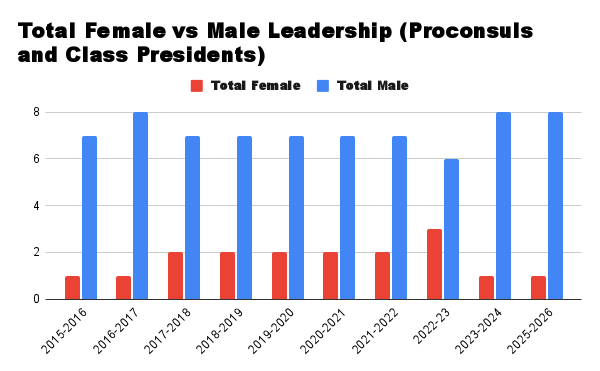“Ok Boomer”
A Look Into the “Ok Boomer” Controversy
All over America, the social phenomenon “OK, Boomer” is spreading like wildfire amongst Millennials, Generation X, Generation Z and Baby Boomers. While elders have become rather defensive about “OK, boomer,” it is important to note that for many people, “OK, boomer” is a coping mechanism that uses humor to distract the younger generation from more pressing issues, like finding gainful employment and the coming of climate change. At the same time, “OK, boomer” points to a growing gap between the two generations of people, which is almost as catastrophic as climate change. The time for change is now, and without it, we are doomed to repeat a pattern that has proven to be ineffective and ultimately, detrimental.
In four years, the median millenials will turn 35, but this generation will only own a jaw dropping 3% of the nation’s wealth, compared to baby boomers’ 21% of wealth when they hit the median age of 35, in 1990 (Barron’s). (https://www.barrons.com/articles/heres-how-big-the-boomer-millennial-wealth-gap-is-51575586317). Currently, boomers own 57% of the nation’s wealth. At face value, it is easy to dismiss the jarring disparity between the two generation’s wealth as millenials’ go with the flow mentality—an argument frequently used by boomers. However, it is important to note that the three generations aren’t the same size. When boomers hit a median age of 35, they made up 31% of the U.S. population, but when the median millennial crossed that threshold, the generation accounted for only 22% of the population.
In addition, boomers faced far fewer problems than millennials. The baby boomer generation consists of people whose parents established families after World War II and were a part of the resulting stable, strong economy. Since boomer’s coming of age, real estate, college tuition and the cost of living has skyrocketed, while wages remained stagnant. While testifying before the House Financial Services Committee, Hasan Minhaj called out members of Congress for the student loan crisis by comparing current tuition costs to what they originally paid for the same school. Minhaj exclaimed that the study showed “a 110 percent increase in a period of time when wages have gone up only 16%” (NBC). (https://www.youtube.com/watch?v=jfIDh2yGn_g).
The phrase “OK, boomer” should not be seen as some unjustified collective taunt toward the older generation. Millennials and Gen Z’ers have long been frustrated with the consequences of the baby boomers’ decisions and actions, which many hold to be responsible for the dire climate change catastrophe and the economic crisis. Sadly, we have begun to see Generation Z as the very last generation to exist. This belief is misguided, and it is rather bleak that humanity has come to terms with what might be extinction. Instead of accepting this, people should work in the present so that in the future, more generations can exist.
The “OK, boomer” situation has only furthered this gap between the two generations, as some find the saying offensive. Recently, WHAM 1180 radio host Bob Lonsberry compared “OK, boomer” to the n-word. He claimed that the meme is “ageist,” which blew the situation out of proportion. It is important to understand that “OK, boomer” and the n-word cannot be compared. The n-word has an extensive and dark history that has been used to subjugate an entire race for centuries.
In comparison, “OK, boomer” has none of that history; it is only used to make light of a situation in which the younger generation feels trapped by the decisions of the older. The disparity between the two terms is quite obvious. Olivia Wong ’23 agrees that the two words are very different, saying, “It’s really foolish. It’s not as bad as the whole n-word thing, and it’s really a meme at this point. Claiming that the slur is ageist is unreasonable, as people say ‘OK Boomer’ to people younger than them.”
This inflamed internet phenomenon adds to the generational disconnect that has become more and more apparent as generations have drifted apart. Funnily enough, this is not the first time two generations have conflicted. Bill Flanagan of CBS News said, “We grew up under a barrage of insults from the World War II generation. They never stopped reminding us that they were raised in the Depression, they beat Hitler, while we had everything given to us.”
In an age where the human race should ostensibly be more connected than ever through technology, humanity has ironically lost touch with itself. Without communication, boomers and millennials will remain in the dark about what the other truly meant.
As Abraham Lincoln once said, “A house divided against itself, cannot stand.” Improving the growing generational disconnect will be difficult, to say the least. It requires a coordinated effort across all generations. It requires the ability to discuss issues without making excuses. It requires acknowledging and addressing the important issues just beneath the “OK Boomer” meme. It also requires the ability to create and accept a compromise, which will allow for more understanding between the two groups. Without accepting change, humanity may be set irreversibly in its ways of division and derision.

Hi, my name is Sherie and I am the print Editor-in-Chief for IMUA. My mom actually decided that I should join IMUA, but I chose to stay of my own accord...









Rosemary Diaz • Jan 26, 2021 at 1:59 pm
The word boomer doesn’t offend me.. I worked hard for what I have and enjoy today ..